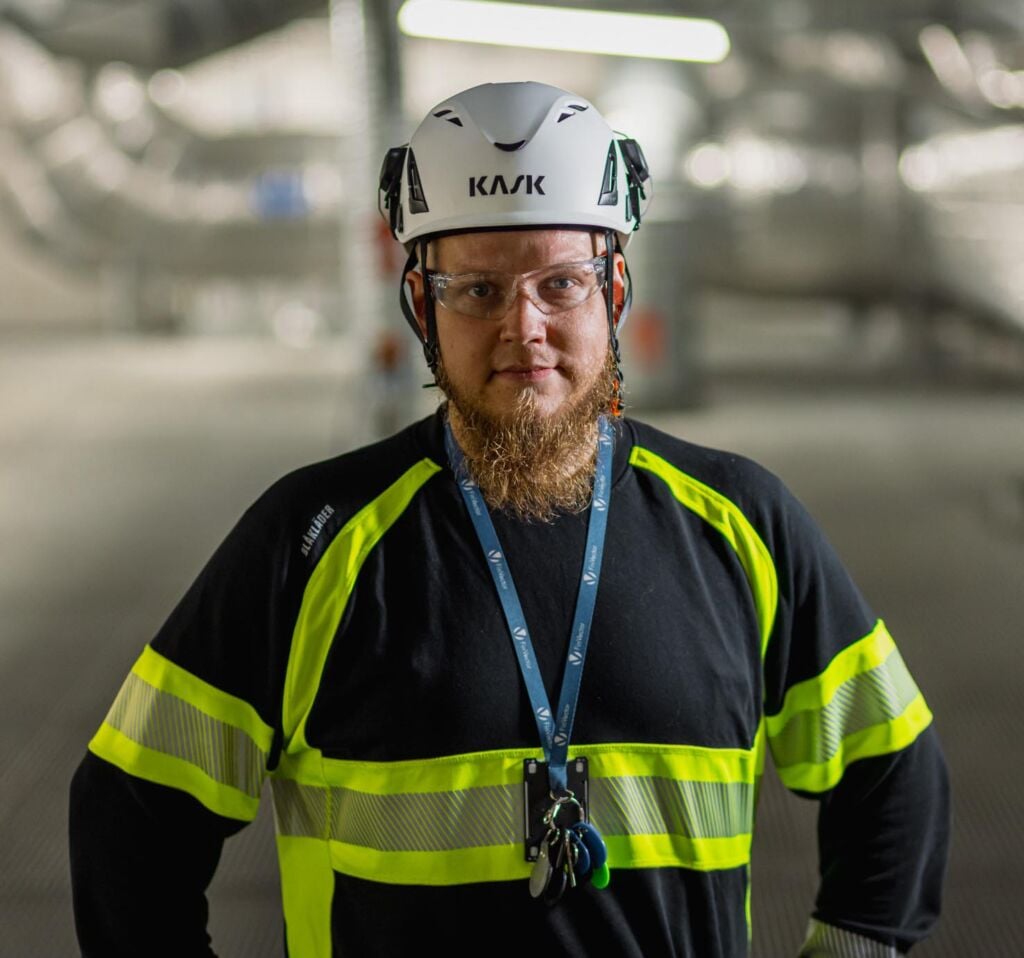Miklós Jaatinen is a family father from Kuopio, Finland whose career in construction began back in 2009 in the HVAC sector in Helsinki metropolitan area. Working in family business naturally led him to pursue a specialist vocational qualification in building services engineering, focusing on ventilation installation and technical work. This also earned him the qualification to supervise the construction of ventilation systems (IV).
– After completing my training, my career continued in Kuopio, where I worked in HVAC until the end of 2023. After that, I made a targeted career shift into the pharmaceutical industry, and I now work in the maintenance and monitoring of cleanroom HVAC systems.
The pharmaceutical environment is highly regulated and demanding, and the functionality of HVAC systems plays a central role. The job emphasizes hygiene requirements, environmental control, and precise documentation.
– The work is meticulous and scientific, which made me realize it was the right time to expand my expertise further. I decided to apply for civil engineering studies at a university of applied sciences, aiming for an engineering degree.
Karelia University of Applied Sciences Offers a Supportive Learning Environment
– I’ve really enjoyed studying at Karelia University of Applied Sciences. The learning environment is supportive, and the teachers are approachable and professional. The flexibility of blended learning has been a major advantage for me, as it has allowed me to smoothly combine work, family life, and studies. Karelia provides clear and effective solutions for completing studies, and they actively organize networking events during on-campus study days, which have helped build community and industry connections.
Getting into Karelia wasn’t a given for Miklós—the entrance course felt demanding and there were many applicants.
– Still, I decided to give it my best shot, thinking that if I didn’t get in the first time, I’d apply again. Luckily, my first attempt was successful, and I’m truly grateful I had the courage to go for it.
Civil Engineering Studies Build a Strong Base for Expertise
The civil engineering programme covers a wide range of core areas in construction. The studies provide a solid base in subjects like structural dynamics, statics, thermodynamics, and construction chemistry. Mathematical studies such as integral and differential calculus and algebra are also essential for understanding technical topics.

Miklós Jaatinen
Technical Specialist, FinVector Oy
Engineering Student
“It’s been wonderful to see how my employer has supported this goal from the beginning. I received encouragement even during the application phase, and the support has continued throughout my studies.”
📷 Photo: FinVector Oy
Practical Skills and Memorable Courses
In studies related to structures and construction, students learn the basics of building construction, concrete and wood construction, and building services engineering. Practical skills are developed through tools like CAD design and modeling.
– The most interesting courses have been those related to engineering calculations, such as statics, structural dynamics, and differential calculus. These allow you to really dive into how structures behave and solve technical challenges, which is highly motivating for me.
One particularly memorable course for Miklós was the building construction class, where students created main drawings of a building and modeled them using CAD and Revit software.
– It was a concrete and creative process where theory clearly connected with practice.
Employer Support for Professional Development
Miklós’s studies have been positively received at his workplace, boosting his motivation and reinforcing the value of personal development for both the individual and the employer.
– It’s been great to see how my employer has supported this goal from the start. I got encouragement even during the application phase, and the support has continued throughout my studies. I’ve been able to organize my work tasks so that studying and working go hand in hand smoothly. This has allowed me to progress in my studies without compromising my work—and vice versa, the knowledge gained from studies has added value to my job.
Growth and Learning Don’t End with an Engineering Degree
– Right now, I’m in my dream job, and that’s exactly why I want to develop myself even more purposefully. It’s important for me to deepen my expertise through education and ensure I can offer the best possible professional skills in my current role.
Miklós sees studying as a way to strengthen his expertise and respond to the evolving demands of the industry. He wants to grow in his role and become an even stronger contributor to his team and organization.
– I’ve also thought about the time after graduation and the possibility of continuing further, for example, through a master’s degree at a university of applied sciences (YAMK) or other advanced training in the future, if it supports my work and professional development.

